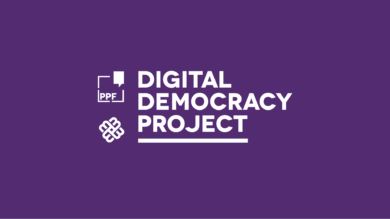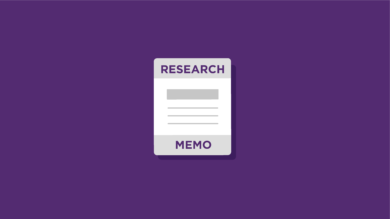
DDP Research Memo #1: Media, Knowledge and Misinformation
How Canadians' news and social media consumption affects misinformationExecutive Summary
Key Findings
- Consumption of traditional print, broadcast and online media remains relatively high across partisan lines. Alternative media sources that cover politics from an overtly ideological perspective are more prevalent on Twitter than among the general public.
- Canadians are somewhat trusting of traditional news outlets as a source for political news, especially compared to political parties and social media.
- Exposure to both mainstream media and, to a greater extent, social media is associated with higher levels of misinformation. One key point of vulnerability is the greater tendency of media consumers with strong partisan tendencies to become misinformed with news exposure, especially via social media.
- The environment has emerged as the dominant policy issue for Canadians, though markedly less so for Conservative party supporters. The topic was also prominent among political candidates and journalists on Twitter. However, other issues that the public identified as important—such as healthcare and the economy—were less likely to be discussed by candidates and journalists.
This is the first report from the Digital Democracy Project, a partnership between the Public Policy Forum and the Max Bell School of Public Policy at McGill University. The goal of this report is to provide an initial snapshot of the Canadian political media ecosystem leading up to this fall’s federal election. The project uses data from both public opinion polling and online media analysis to examine the media habits of the broader Canadian public as well as the political and journalistic class, with an eye to understanding the various relationships between media use, partisanship, political knowledge, and concern over policy issues. This initial report is intended to serve as a baseline from which changes throughout the election campaign can be measured.
The aim of the Digital Democracy Project is to help build the international evidence base with a robust and maximally reproducible Canadian case study. Although many studies have sought to calculate the prevalence of various forms of problematic content online, these are rarely grounded in the context of people’s media consumption, and thus provide limited insights into real consequences of digital content for opinion formation and voting behaviours.[1] Our approach seeks to combine survey, social media and behavioural data in order to contextualize our findings.
The findings of our first report are somewhat at odds with the now-familiar story of a fragmented and low-trust media environment in which political actors and their partisan supporters have retreated to their own media echo chambers, creating fertile ground for disinformation and foreign interference to take root. Instead, we found that Canadians are more likely to receive their political news from traditional mainstream media outlets. Furthermore, news media preferences are fairly homogeneous regardless of which party people support, with the CBC, CTV and Huffington Post appearing in the Top 5 print/online news sources for supporters of all three major parties. Alternative media sources that cover politics from an ideological perspective (e.g. The Rebel, Post-Millennial, Rabble) do not crack the Top 20 news sources in the survey. However, they enjoy more prominence on Twitter among users of the top Canadian political hashtags who share links to news sites, which is an indication that the conversation on Twitter does not necessarily reflect the perspectives of the Canadian population at large.
Canadians also remain relatively trusting of mainstream news outlets in comparison with other sources of information. On a scale of 0 to 10, with 10 being the highest level of trust, Canadians trust political information from mainstream news organizations (5.8) at similar levels as their friends and family (6.0). They are comparatively much less trusting of the information provided by the major political parties (4.8), and in what they read on social media (3.3 for all respondents, 4.2 for respondents who indicated they used social media for political news in the past week).
When it comes to political knowledge, despite being only modestly well-informed about the facts relating to key policy questions, Canadians are relatively confident that they know enough to cast an informed vote. Crucially, Canadians tend to be uninformed about key issues (indicating they don’t know the answer to a given policy question) as opposed to misinformed (giving the wrong answer).
In fact, the overall level of misinformation appears to be quite low in the Canadian public. The one troubling point seems to be that, while social media exposure is associated with higher levels of misinformation, so is exposure to traditional or mainstream media (though to a lesser extent). In general, it appears that simply consuming news, regardless of source, makes people susceptible to being misinformed about the issues.
Survey respondents who read or watched more traditional news media were less likely to express uncertainty about policy questions than those with low consumption, but more likely to give an incorrect response. However, respondents with high levels of social media consumption were more likely to give incorrect responses than those with lower consumption. Strongly partisan respondents were particularly susceptible to giving more wrong answers as their media consumption increased, with the difference being more pronounced for social media consumption.
So what are the key election issues for Canadians? The environment is front and centre for the public, the media and political candidates, though somewhat less so for Conservative Party supporters, for whom economic considerations dominate. This marks a sea change from the times when the economy and health care were overwhelmingly cited as the key issues for Canadians across the political spectrum. Aside from the environment, the main topics of discussion among politicians and journalists on Twitter diverge from the topics identified as priorities by survey respondents. Candidates stressed infrastructure, foreign affairs and ethics (including topics related to the SNC Lavalin scandal, the public statements of former ambassadors on China, and similar issues) more than the general public, and were less likely to tweet links to stories about healthcare and the economy. Journalists, meanwhile, focused more heavily on ethical issues and foreign affairs.
The report is based on the findings from two distinct sources of data. The first is a survey of 1,003 Canadians conducted in the last week of July, in which respondents were asked questions related to basic demographics, as well as their partisan, ideological and issue preferences. They were also asked to identify their recent exposure to the news media and to answer a series of fact-based policy questions to appraise their level of knowledge of basic political and policy issues and to what extent they may be misinformed on those topics.
The second source is data gathered from approximately one million tweets from June 3 to July 26 collected from the Twitter accounts of major party candidates; a set of approximately 300 political journalists; a range of politically relevant third parties; and a sampling of the general online population through their political hashtag use.
[1] Tucker, J., Guess, A., Barberá, P., Vaccari, C., Siegel, A., Sanovich, S., & Nyhan, B. (2018). Social media, political polarization, and political disinformation: A review of the scientific literature. Available at https://papers.ssrn.com/sol3/papers.cfm?abstract_id=3144139




